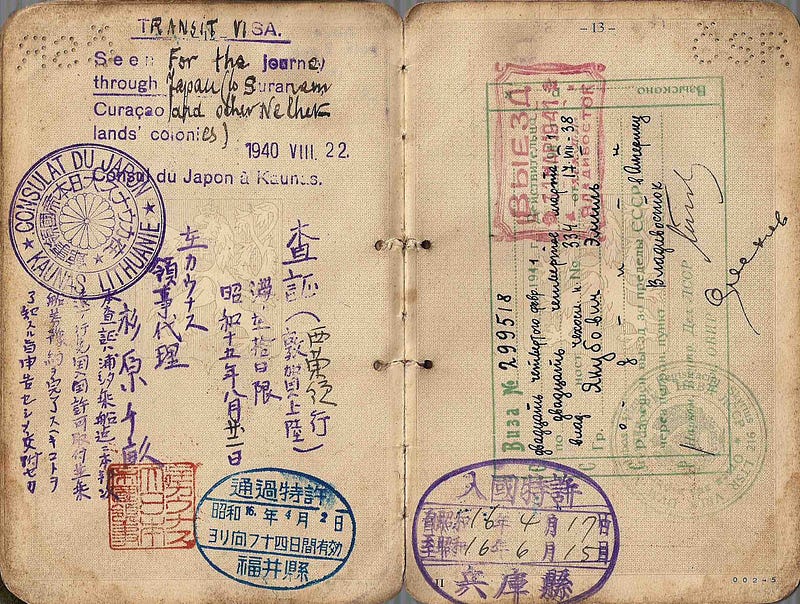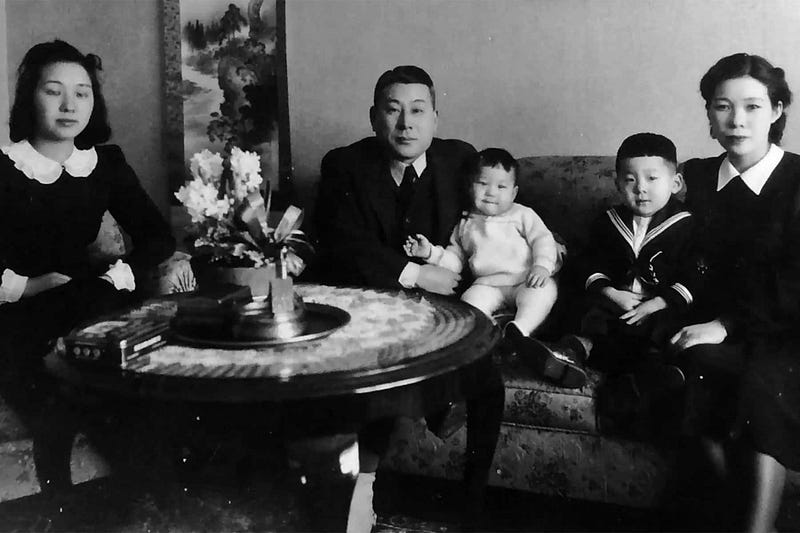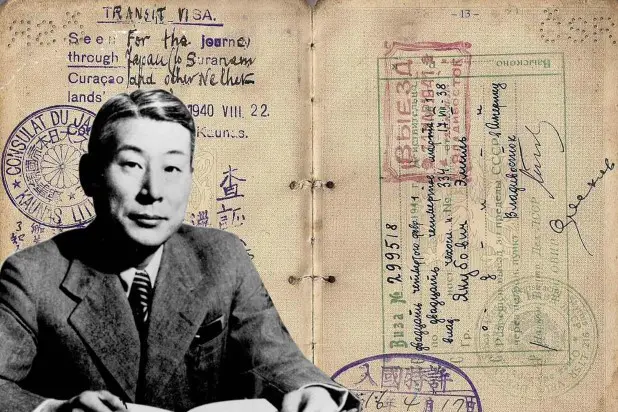 ost people know about Oskar Schindler and how he saved 1,200 Jews from being murdered. But not many people are aware of Chiune Sugihara, a Japanese businessman who, just like Schindler, used his power and status to save Jewish lives. According to the Times of Israel, in 1940, Chiune Sugihara was vice-consul in Kaunas, the then capital of Lithuania. The city had a large and prosperous Jewish community of about 30,000 people. Kaunas’ population was supplemented between 1939 and 1940 by thousands of Jews fleeing Nazi persecution in German-occupied Poland.
ost people know about Oskar Schindler and how he saved 1,200 Jews from being murdered. But not many people are aware of Chiune Sugihara, a Japanese businessman who, just like Schindler, used his power and status to save Jewish lives. According to the Times of Israel, in 1940, Chiune Sugihara was vice-consul in Kaunas, the then capital of Lithuania. The city had a large and prosperous Jewish community of about 30,000 people. Kaunas’ population was supplemented between 1939 and 1940 by thousands of Jews fleeing Nazi persecution in German-occupied Poland.
After the Soviet Union annexed Lithuania in 1940, the population of Kaunas remained trapped, unable to leave the country, even as the Germans advanced on the Soviet line. Chiune Sugihara became aware of the dire situation of the Jews, and trying to find a way to help them. Jewish refugees could not leave Lithuania to travel east through Soviet territory without visas. Many wanted to get to the Dutch Caribbean, Curacao, and Guyana, but to get there safely needed a visa for an East Asian country.
Japan was used as a transit country
Sugihara immediately saw a way to help them, using his homeland, Japan, as a transit point. Visas issued by Sugihara allowed them to pass through the Soviet Union, then into Japanese territory, then into the Caribbean. When all foreign diplomats were ordered to leave the city, he asked to stay another 20 days, writing to his superiors in the Japanese Foreign Ministry to approve his plan. According to historian Yutaka Taniuchi, the Japanese authorities flatly refused to issue visas for Jewish refugees unless they guaranteed that they would not stay in Japan.
This was impossible for Jews to do, which removed the possibility of obtaining visas. Chiune Sugihara wrote to his superiors three times, begging them to help him. When he was refused, he was left with a big dilemma: to follow orders or follow his conscience?
Going against his own Culture
Japanese culture clearly prioritized hierarchy and discipline, and for Sugihara to break the orders of his superiors was an extremely serious matter. He risked severe punishment if he abused his position and acted contrary to orders.

Every day, hundreds of Jewish families appeared in front of the Japanese consulate in Kaunas, begging Sugihara to help them. With the help of his wife, Sugihara began issuing visas. During August, Sugihara and his wife created and distributed transit visas for these families. Even though visas normally take months to process, they issued about 300 visas per day, an extraordinary amount. Sugihara worked almost non-stop, determined to help every person that came to him.
On September 1, 1940, Chiune Sugihara was forced to leave Lithuania by train to Berlin. Even at the station, he continued to write visas for the crowd that had gathered near the train.
At the last moment before leaving, he gave his stamp to one of the Jews waiting at the station, which allowed him to issue visas for the remaining families. The last words for the crowd were: “Please forgive me, I can no longer write. I wish you all the best.”
It is not known for sure how many people Chiune Sugihara rescued, but it is estimated that he issued about 6,000 transit visas. Many of these were for families, thus the number of people he saved was most likely considerably higher.
One year after his departure, the Germans conquered Lithuania. Jews in Kaunas who failed to obtain visas from Sugihara were deported to concentration camps, where many of them died.

After leaving Germany, Sugihara was consul general in Prague (Czechoslovakia) from March 1941 until the end of 1942. From 1942 to 1944, Chiune Sugihara was in Bucharest, Romania. After Soviet troops entered Romania, Sugihara and his wife were then deported to a prison camp.
In 1946 they were released by the Japanese government, which left Sugihara without a position or title. He was transformed from a government official to an ordinary man with a precarious financial situation. However, he never regretted his decision to help the Jews of Lithuania.
Chiune Sugihara died on July 31, 1986, in Japan, two years after he was rewarded for his courage with the title of “Law between Peoples” by Israel.
Avid Writer with invaluable knowledge of Humanity!
Upcoming historian with over 30 million views online.
“You make your own life.”





